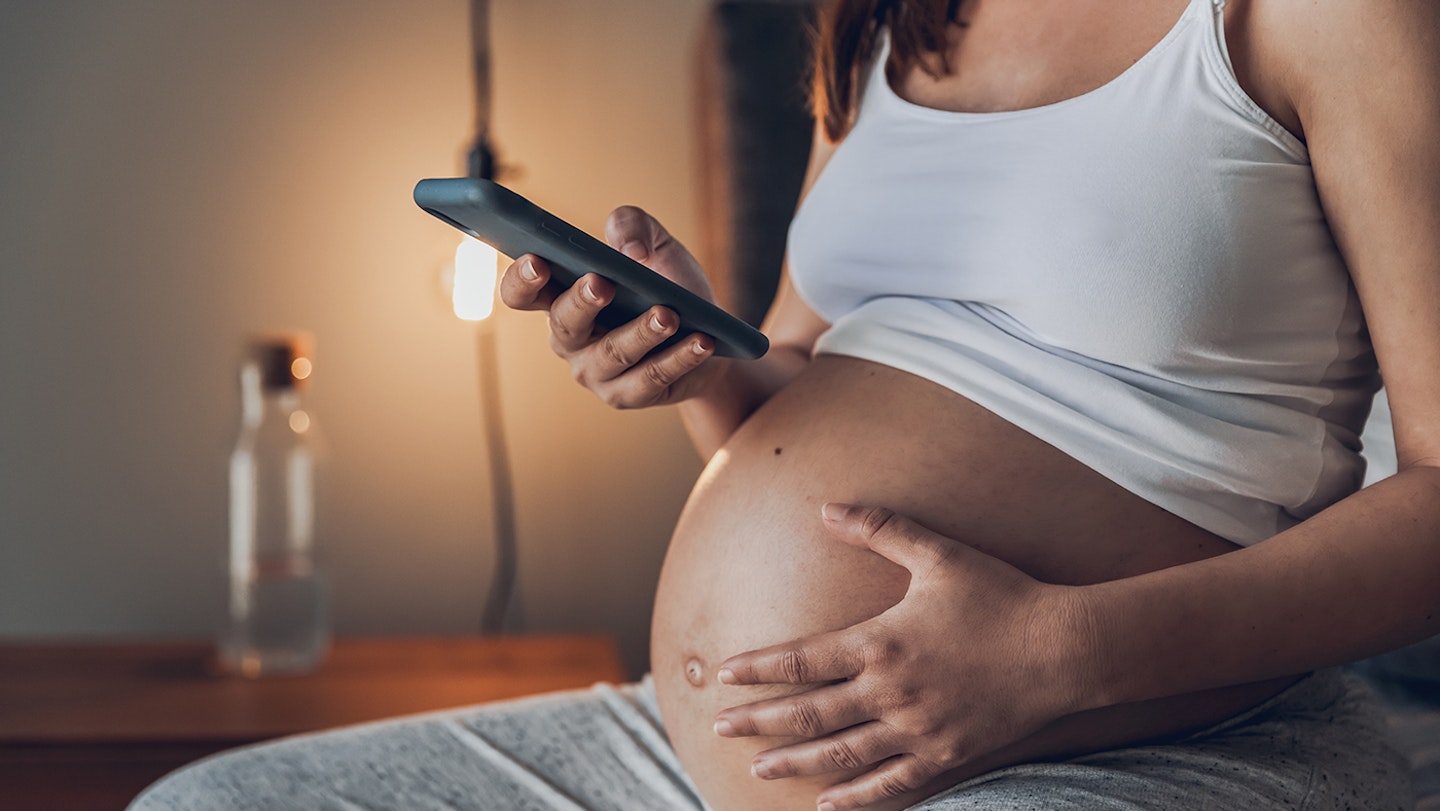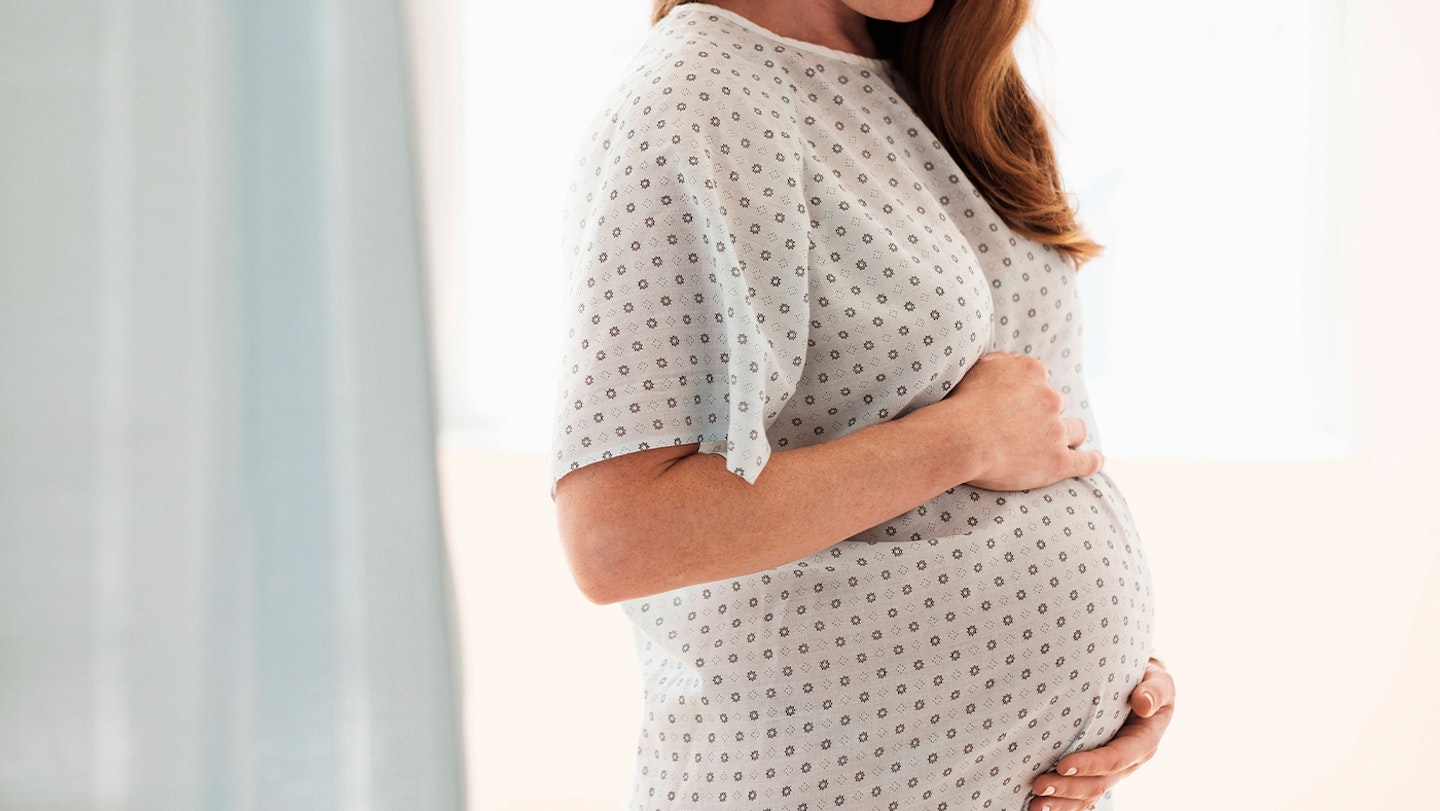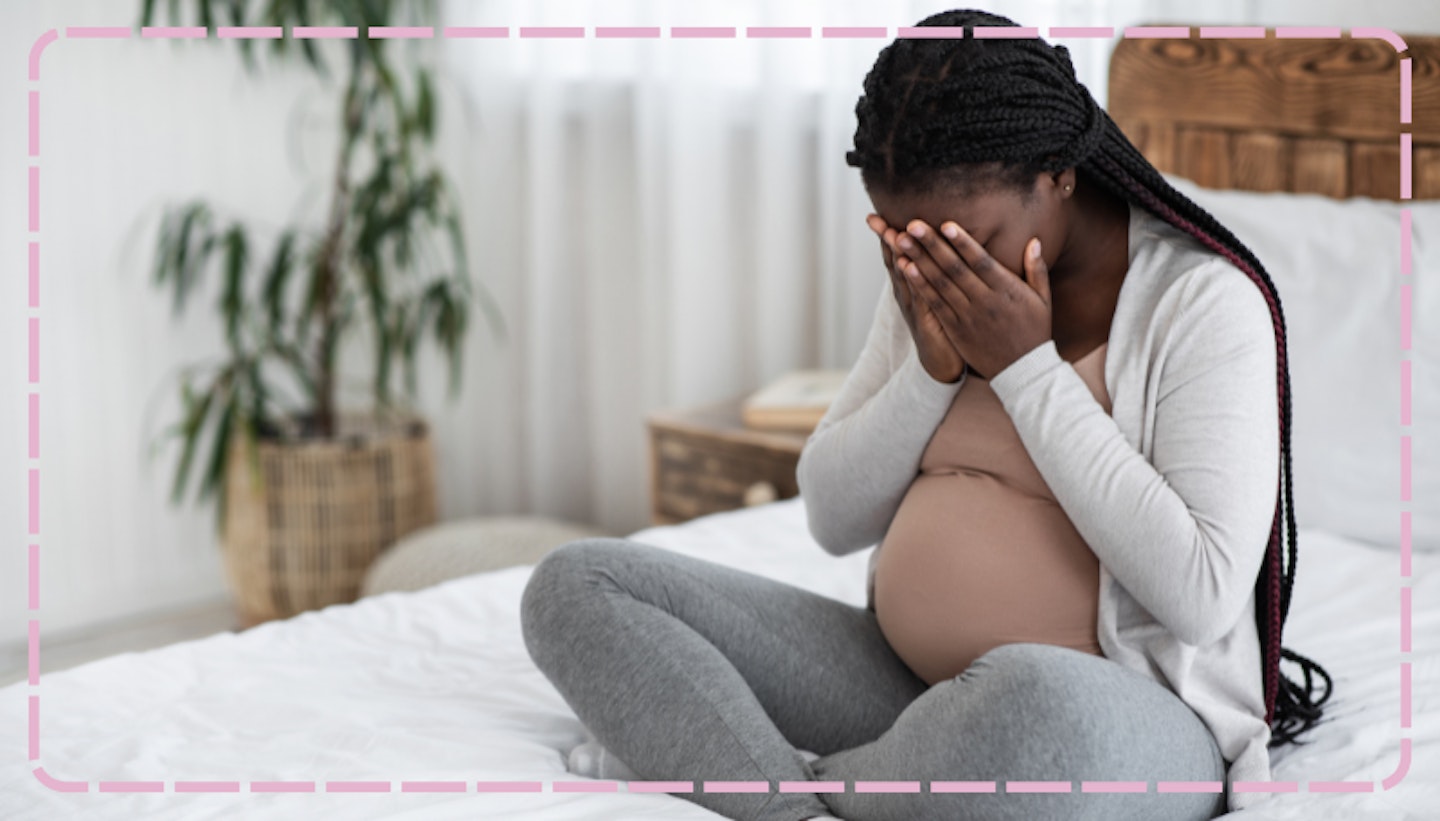Some levels of anxiety are very normal in pregnancy. After all, you’re embarking on an entirely new chapter of life, which comes with its challenges. It’s natural for you to wonder, How will I adjust to this new life? What's going to happen to my body? What kind of mother am I going to be? What kind of a baby am I going to have? What will giving birth be like?
These can be quite common concerns and emotions to feel throughout pregnancy, but an increasing number of pregnant women are experiencing heightened levels of anxiety, particularly around their health.
That was the case for Mother&Baby’s Editor Maria Martin, who, during her first pregnancy experienced uncontrollable and excessive intrusive thoughts about the health of her and her husband. This resulted in physical symptoms which took over her daily life, “It began with a variety of intrusive thoughts that began with me getting ill, or my husband getting ill, or one of us getting hurt,” Maria recalls.
According to figures from NHS England, mental illness affects up to one in five new and expectant mums, with more than 57,000 new and expectant mums receiving specialist support for mental health problems over the last year. This is up a third from 2022, with the COVID-19 pandemic having a huge impact on our attitudes towards our health, with the effects continuing to unravel.
With mental health issues on the rise in pregnancy, we spoke to Kamalyn Kaur, an anxiety therapist who dedicates her time to helping pregnant mums overcome extreme levels of health anxiety. Kamalyn helps us delve into more about what causes health anxiety in pregnancy, the signs your anxiety is becoming extreme, and the ways you can manage it.
What causes health anxiety in pregnancy?

It may not shock you to know that many women who have experienced previous pregnancy complications are more susceptible to health anxiety during their future pregnancies. “Health anxiety also impacts those with past trauma, whether it’s from childhood or previous life experiences,” Kamalyn explains.
Much like postnatal depression, pregnancy can make you more vulnerable to severe health anxiety, especially if you have a history of anxiety, depression or PTSD. Pregnancy can act as a trigger, amplifying any underlying concerns.
Support from your community
Another factor that Kamalyn has observed in recent years is the growing lack of social structure and support networks that many women face today. Unlike previous generations, many women no longer have easy access to these vital connections after moving away from family and friends. "When you're facing challenges on your own without that circle of support, it can lead to heightened anxiety," Kamalyn explains. "There’s only so much you can share with a partner - you need different perspectives from other mothers who have experienced the same things."
Finally, the main factor which underpins most cases of health anxiety in pregnancy is control. “You can't control death, and you can't control birth, and that's why it stresses people out,” Kamalyn explains. “If you are one of those type A personalities who's constantly got every single thing dotted down to a T, and then all of a sudden, you're pregnant, and you have no control over your emotions, no control over your hormones, no control over how this baby is growing or developing inside you, and no control over how that birthing process is going to be. Can you imagine, for that woman, that's her nightmare coming true.”
The role of the pandemic on health anxiety

Though the pandemic may seem like a distant memory, its ripple effects continue to shape our approach to health concerns today. It was a stark reminder of life’s fragility and made us question what would happen if we fell ill—would our loved ones be okay?
Kamalyn has noticed a significant increase in pregnancy health anxiety cases since the pandemic, believing that with our daily distractions of life stripped away, people were left to dwell on their thoughts and fears. "I think with COVID, because all that infrastructure was removed, people had a lot of time on their hands just to stay in the same place and ruminate over the same thing again and again.”
How to recognise extreme health anxiety
The line between normal health anxieties and extreme health anxiety can feel incredibly blurry because, as humans, our fundamental instinct is survival—especially during pregnancy, when the intense drive to protect our baby takes over. So, how can we tell when this natural concern crosses the line into something more overwhelming?
“The desire to ensure that the mother and the baby are okay is a very normal and natural response to pregnancy, and thinking about your diet, exercise, pregnancy vitamins and supplements are really common concerns to have, and they’re usually temporary,” explains Kamalyn.
The worry becomes excessive when it leads to a physical response of anxiety and begins to take over your daily life.
For Mother&Baby’s Editor, Maria, it was during her first pregnancy that these extreme physical anxiety symptoms began when her intrusive thoughts led to panic attacks, which took a huge toll on her physical and mental health.
“It started mentally, then physically my vision was impaired, I had sweaty palms, I had to work hard to control my anxiety, and I was still having to go to work even though I couldn't really drive,” Maria recalls. It was then that Maria recognised there was a problem. At that point, she spoke to her GP, who made a referral for her to begin NHS talking therapy sessions.
Symptoms of health anxiety: “You can actually have real physical symptoms”
In addition to the common physical symptoms of anxiety, such as a racing heart, sweating, and difficulty breathing, other physical manifestations can occur in a variety of ways, often intensifying concerns about your health. Here are some physical anxiety symptoms below:
• Increased heart rate
• Heart palpitations
• Indigestion
• Appetite changes
• Stomach problems such as diarrhoea or constipation
• Sickness and nausea
• Frequent urination
• Dizziness
• Pins and needles
• Headaches
• Backache and other body pains
• Insomnia
• Sweating or hot flushes
These symptoms can lead to changes in behaviour, including manifesting as obsessive tendencies, such as repeatedly checking your body for symptoms, Googling health concerns, excessive research into potential issues, or feeling the need to make a doctor's appointment for every small change you notice in yourself. "When your anxiety begins to interfere with your daily life, that's when it has developed into health anxiety," Kamalyn explains.
Sometimes, these symptoms can arise even when you're not feeling overly anxious, as our underlying thoughts have such a powerful influence on our physical responses. “They might not be in the forefront of your mind, but they're just there in the back of your mind, constantly bubbling away," Kamalyn explains.
Ways to minimise health anxiety during pregnancy

Many people struggling with health anxiety can find themselves caught in a vicious cycle of constant problem-solving, which leads to something called 'safety behaviours' that ultimately worsens the anxiety. Whether it's excessive online searching, seeking constant reassurance from loved ones, or frequently checking your body, these actions may feel like you’re trying to help the situation but do little to help in the long term. According to Kamalyn, there are three main things you can do to manage your health anxiety during pregnancy and beyond.
1) Limit unnecessary information seeking
Excessive online research and reading things about pregnancy complications can fuel a lot of unnecessary anxiety and worry. Instead, stick to reliable, trusted sources from your GP or your healthcare provider. Remember, Dr Google has never saved anyone’s life, and there are many people on social media giving advice who are not really qualified.
2) Stay connected with your healthcare team
Make sure you're getting all your regular antenatal checkups. Openly communicate any symptoms or anxieties with your doctor or your healthcare team so that you can address any concerns as you go along, rather than overthinking and overanalysing them and then making them into an issue in your head. It might be that you start keeping a journal of your own thoughts, triggers, and symptoms to discuss at your next appointment.
3) Practice relaxation techniques
To help relax your body and mind and create that sense of calm, you could do prenatal yoga, deep breathing exercises, meditation, practice mindfulness, or listen to ASMR.
Who to turn to when going through a health anxiety crisis
If you’re experiencing debilitating levels of health anxiety right now, then you should speak to your GP about your options. You can also refer yourself for therapy on the NHS website without having to book an appointment with your GP. For moments of crisis when you need to speak to someone now, there is plenty of help available:
• Tommy’s: 0800 014 7800 Mon-Fri 9am-5pm or email midwife@tommys.org
• Mind: 0300 123 3393 or email info@mind.org
• Samaritans: 116 123 or email jo@samaritans.org
• Call 111
When asked what she would say to herself during the lowest moments of her pregnancy, Maria reflects, "I would tell myself to open up to my family about what I was really thinking and not to be afraid. You are stronger than you realise."
Lorna White is the Products Editor for Mother&Baby. After running the Yours magazine website, specialising in content about caring for kids and grandchildren, Lorna brought her expertise to Mother&Baby in 2020. She has a keen interest in a range of topics from potty training and nutrition to baby names and early development and has a wide range of experienced medical experts and professionals at her fingertips. In her spare time, she enjoys spending time with her two young sisters, dog walking and enjoying the outdoors with her family.
